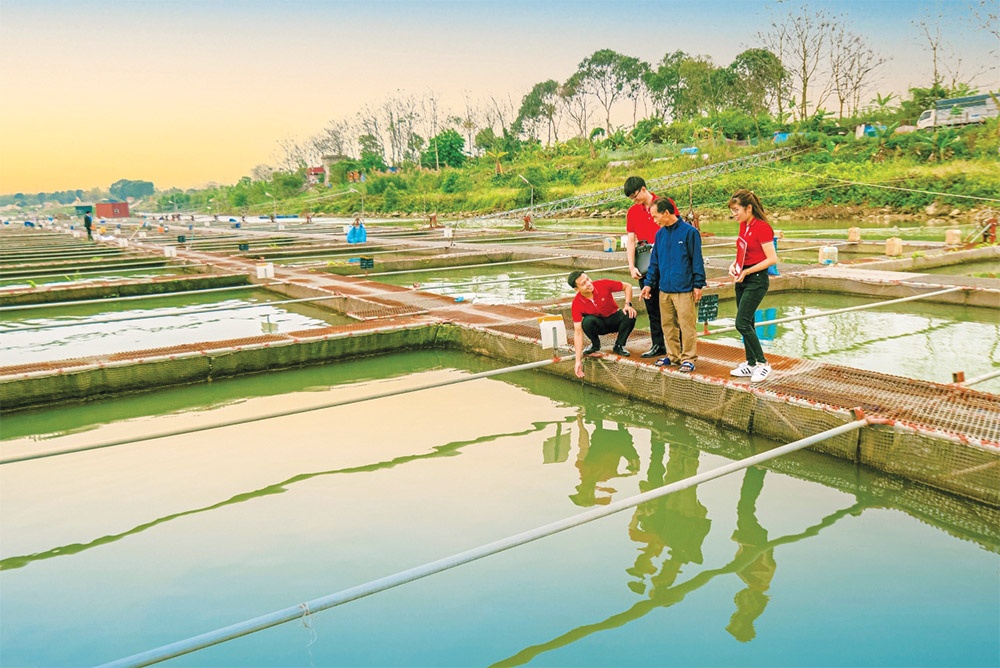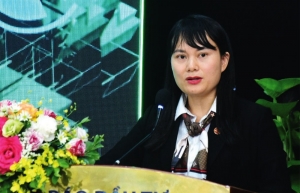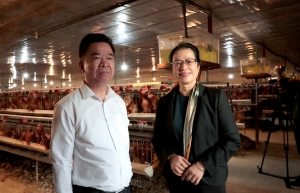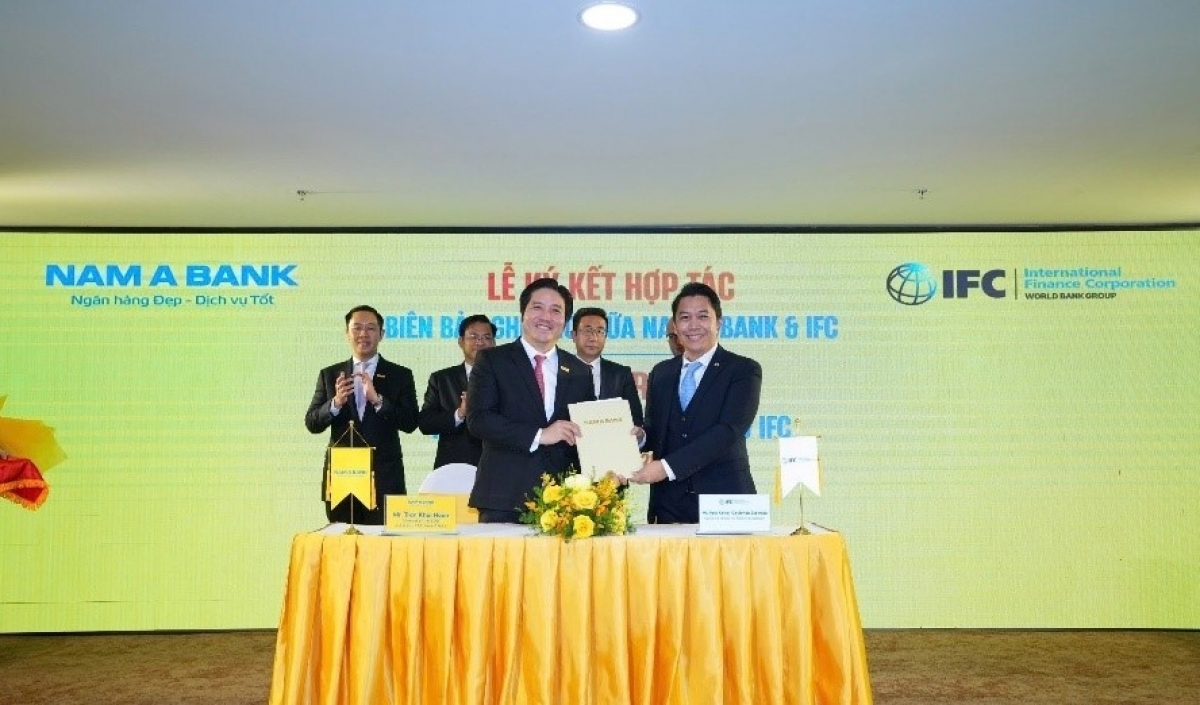INTERNATIONAL INVESTMENT
AND PORTAL
In late October, an Agribank delegation led by board member Nguyen Tuyet Duong attended meetings co-organised by the World Bank and the International Monetary Fund. The delegation also worked with Moody’s and Wells Fargo Bank on environmental, social, and governance (ESG) considerations as well as sustainable finance topics.
 Most of Agribank’s green credit customers are involved in agriculture
Most of Agribank’s green credit customers are involved in agriculture
The delegation worked with Swami Venkataraman, who is the global head of Sustainable Finance, and other senior experts of Moody’s Ratings on the latter’s perspective on international policies and regulations on sustainable development and assessed the impact of those policies and regulations on Vietnam, and Agribank in particular.
Venkataraman emphasised the impact of ESG risks on the credit rating results of an organisation in the current context, the criteria that Moody’s uses to assess risks, and shared the experiences of banks around the world on how to manage risks, as well as focus on sustainable financial development.
He also highly appreciated the results on the impact of ESG risks on the credit rating results of Agribank. With a CIS-2 score, he assessed this as high compared to banks with the same credit rating results that Moody’s assessed.
Dr. Nguyen Thi Thu Ha, director of Agribank Staff Training School, said at a workshop in Hanoi earlier in November, “The adoption of ESG practices is increasingly essential for commercial banks like ours to thrive in a sustainable and competitive environment. Along with green credit, banks need to synchronously deploy all three ESG pillars to achieve the goal of comprehensive sustainable development.”
Regarding the actual implementation at Agribank, with the key role in providing capital and financial services to the agricultural and rural areas, the lender is committed to implementing environmental criteria synchronously in all of the bank’s operations, contributing to promoting green credit growth as well as managing environmental and social risks in credit granting activities.
With the activities that have been and are being implemented, the proportion of green project financing in Agribank’s total outstanding credit increased from 0.9 per cent in 2020 to 1.8 per cent in 2023, maintained until the second quarter of 2024. As of the end of June, the outstanding balance for the green sector at Agribank reached VND27.8 trillion ($1.15 billion).
The banking sector’s green credit average growth is estimated at 14 per cent annually, and the figure at Agribank is 12 per cent. However, Agribank has the largest number of green credit customers at around 42,500, of which more than 40,500 are in the forestry sector, contributing to earn for Vietnam an amount of $51.5 million from forest carbon credits.
Agribank has been appreciated by international donors such as the World Bank, the Asian Development Bank (ADB), French Development Agency, and European Investment Bank (EIB) in disbursing loans for official development assistance projects. It has successfully participated in schemes related to environmental protection with a total capital of nearly VND6.5 trillion ($255.6 million); three EIB financing contracts in renewable energy and efficiency; and two ventures in biogas development and supporting low-carbon agriculture, funded by the ADB.
In 2023, Agribank established a steering committee and a working group to support the implementation of ESG, which are regularly reviewed. Following that, some issues have come up that require attention, Ha said.
“The agricultural and rural sector is heavily affected by climate change, with a large number of customers, a lack of specific legal framework for ESG implementation, and some indicators that are not required to be complied with, so Agribank’s implementation has also encountered certain problems,” she said.
Agribank proposed some recommendations to help adopt ESG practice smoothly. One of the most important proposals is that the Ministry of Natural Resources and Environment should be responsible for developing environmental criteria and determining projects eligible for green credit, which will serve as a basis for credit institutions to apply. In addition, the government and relevant agencies should have policies to promote the carbon market, such as establishing regulations for carbon credit management, among others.
The government and media agencies should also continue to promote the necessity of sustainable development, green banking, and eco-friendly consumption, Ha added. “There must be development of a data system on the compliance status and environmental violations of businesses, creating a basis for financial institutions to assess and determine the level of environmental risk when evaluating loan applicants. The government should improve policies to incorporate risk management for society and governance,” said Ha.
Last but not least, Ha said, it is necessary to mobilise private finance for climate projects, especially in adaptation and enhancing climate resilience, and utilise public-private partnerships to enable more participation in climate initiatives.
 Agribank boosts ability to provide greener credit
Agribank boosts ability to provide greener credit
Lenders are more likely today to take a greener focus in their activities. Phung Thi Binh, deputy general director of Agribank, talked to VIR’s Nhue Man about the bank’s determination to promote green credit growth.
 Agribank furthers growth of thriving rural areas
Agribank furthers growth of thriving rural areas
Vietnam Bank for Agriculture and Rural Development (Agribank) has made great contributions to the success of their customers and brought development and prosperity to Vietnam’s farthest corners.
 Agribank ramps up efforts to spur business development
Agribank ramps up efforts to spur business development
State lender Agribank is exhibiting flexibility through a raft of preferential credit programmes, which are tailored to diverse customer groups and supporting business development.



















